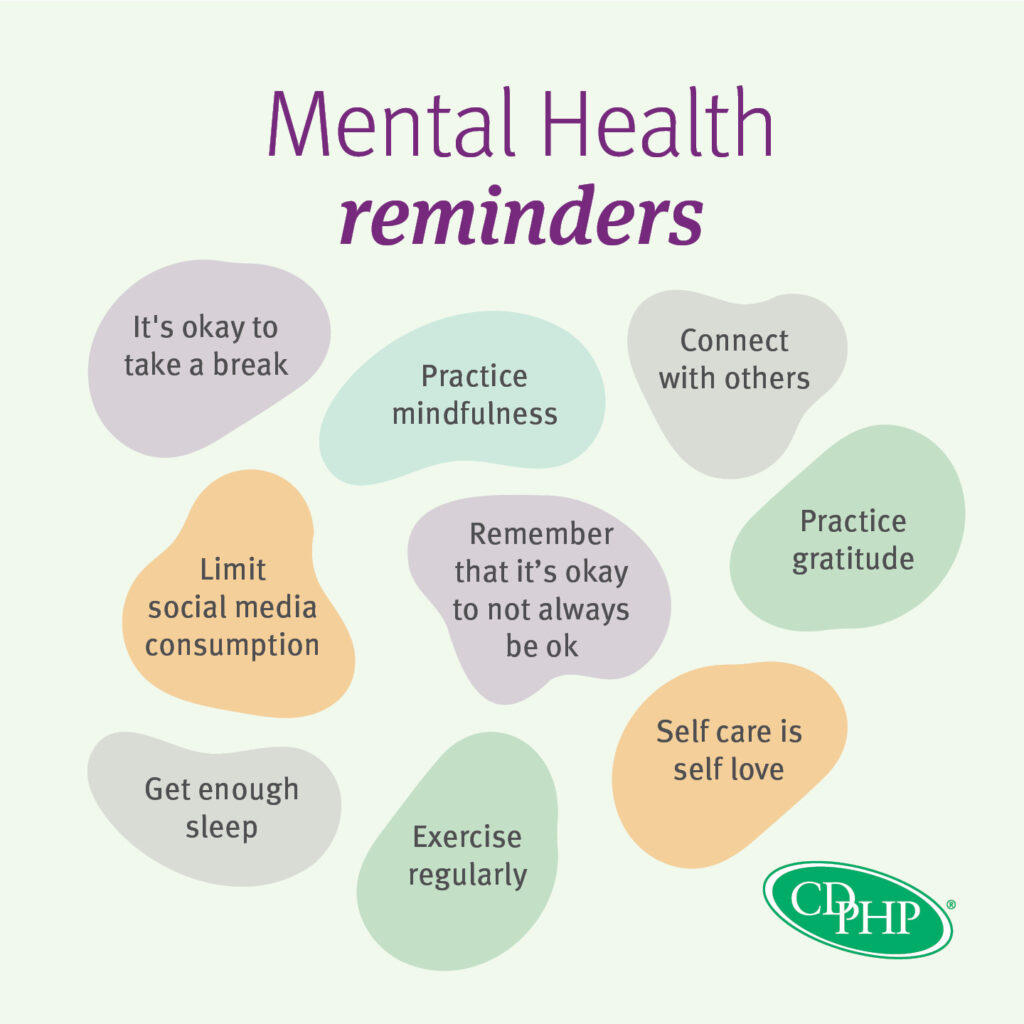Self-care tips in honor of World Mental Health Day

Each year, October 10th is recognized as World Mental Health Day.
Mental health includes emotional, psychological, and social well-being. It is more than the absence of a mental illness. Mental health is essential to your overall health and quality of life. Self-care can play a role in maintaining your mental health and help support your treatment and recovery if you have a mental illness.
Self-care means taking the time to do things that help you live well and improve both your physical health and mental health. This can help you manage stress, lower your risk of illness, and increase your energy. Even small acts of self-care in your daily life can have a big impact. Self-care is the ultimate act of self-love.
Self-care looks different for everyone, and it is important to find what you need and enjoy. It may take trial and error to discover what works best for you.
Here are some self-care tips* that can improve your mental health!
- Make sleep a priority. Stick to a schedule, and make sure you’re getting enough sleep. Blue light from devices and screens can make it harder to fall asleep, so reduce blue light exposure from your phone or computer before bedtime.
- Try a relaxing activity. Explore relaxation techniques, which may incorporate meditation, muscle relaxation, or breathing exercises. Schedule regular times for these and other healthy activities you enjoy, such as listening to music, reading, spending time in nature, and engaging in low-stress hobbies.

- Practice gratitude. Remind yourself daily of things you are grateful for. Be specific. Write them down or replay them in your mind each morning and evening.
- Set goals and priorities. Decide what must get done now and what can wait. Learn to say “no” to new tasks if you start to feel like you’re taking on too much. Try to appreciate what you have accomplished at the end of the day.
- Stay connected. Reach out to friends or family members who can provide emotional support and practical help.
- Get regular exercise. Exercise has been shown to boost your mood and improve your health. Even small amounts of exercise add up. If you have medical conditions that may impact your ability to exercise, please speak with your doctor to make sure that your exercise regimen is safe for you.
- Eat healthy, regular meals and stay hydrated. A balanced diet and plenty of water can improve your energy and focus throughout the day. Pay attention to your intake of caffeine and alcohol and how they affect your mood and well-being.
It is important to note that sometimes the level of stress or severity of symptoms you are experiencing can cause significant distress or interfere with your ability to complete your day-to-day tasks. When this occurs, it can be very helpful to seek out professional treatment.
At CDPHP, your emotional health is just as important as your physical health. That’s why we offer a wide variety of treatment options and resources to support all your mental health care needs, including treatment for substance use disorders. We partner with both in-person and virtual mental health care providers to get you the care you need, when you need it.
If you’re ready to take the first step, we’re here for you. Our Behavioral Health Access Center is made up of a team of mental health care experts who understand what you’re going through and can point you in the right direction.
To get started, give us a call at 1-888-320-9584 between the hours of 8 a.m. and 6 p.m.., Monday through Friday. If you need help after hours or on weekends, simply call 1-888-320-9584 and press “1” to be connected to our after-hours hotline.
You can also visit the CDPHP Mental Health & Substance Use page for more information and to learn more.
*Adapted from SAMHSA Recommendations
 The Daily Dose
The Daily Dose
Comments are closed.